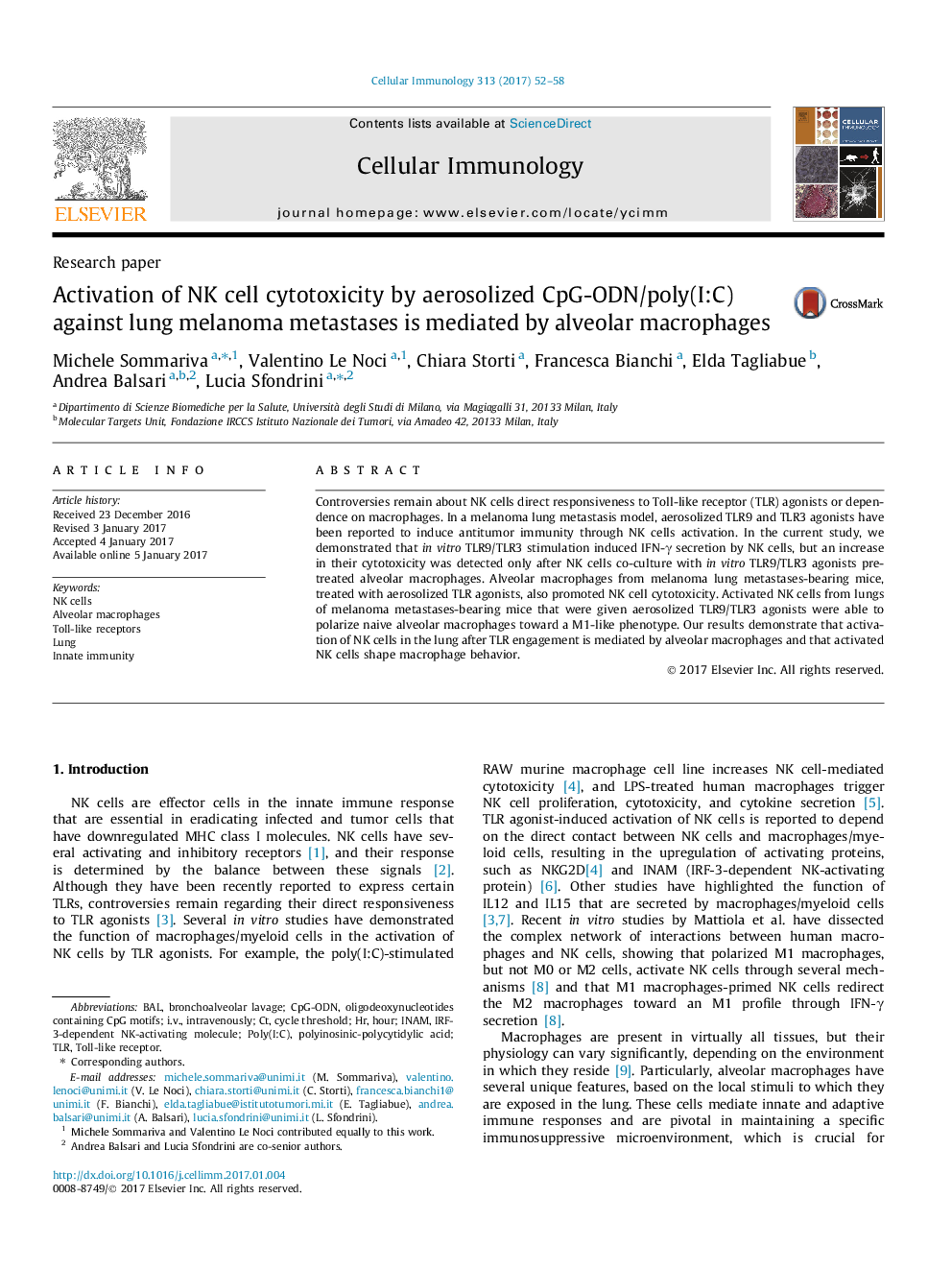| Article ID | Journal | Published Year | Pages | File Type |
|---|---|---|---|---|
| 5530764 | Cellular Immunology | 2017 | 7 Pages |
â¢NK cells direct responsiveness to TLR ligands in the lung is still unknown.â¢NK cells cytotoxicity against cancer depends on activation of alveolar macrophages.â¢Activated NK cells polarize alveolar macrophages toward M1-like phenotype.
Controversies remain about NK cells direct responsiveness to Toll-like receptor (TLR) agonists or dependence on macrophages. In a melanoma lung metastasis model, aerosolized TLR9 and TLR3 agonists have been reported to induce antitumor immunity through NK cells activation. In the current study, we demonstrated that in vitro TLR9/TLR3 stimulation induced IFN-γ secretion by NK cells, but an increase in their cytotoxicity was detected only after NK cells co-culture with in vitro TLR9/TLR3 agonists pretreated alveolar macrophages. Alveolar macrophages from melanoma lung metastases-bearing mice, treated with aerosolized TLR agonists, also promoted NK cell cytotoxicity. Activated NK cells from lungs of melanoma metastases-bearing mice that were given aerosolized TLR9/TLR3 agonists were able to polarize naive alveolar macrophages toward a M1-like phenotype. Our results demonstrate that activation of NK cells in the lung after TLR engagement is mediated by alveolar macrophages and that activated NK cells shape macrophage behavior.
Graphical abstractDownload high-res image (121KB)Download full-size image
